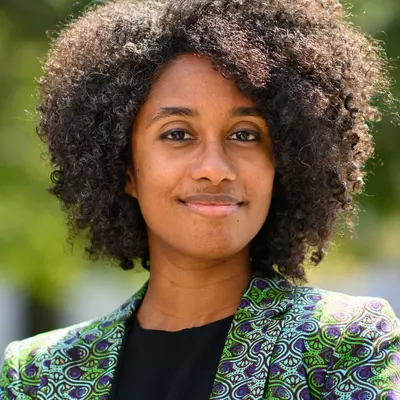
The 2023 Bissell-Heyd Symposium: The U.S. Racial Wealth Gap, 1860-2020 with Ellora Derenoncourt
March 16, 2023 | 9:00AM - 12:00PM
This event is taking place in the Boardroom at the Observatory at 315 Bloor Street West, Toronto, Ontario.
The 2023 Bissell-Heyd Symposium: The U.S. Racial Wealth Gap, 1860-2020
*Open to University of Toronto students, staff and faculty only.
9:00 am: Refreshments and Networking
9:20 am: Opening Remarks:
Professor Nicholas Sammond, Director, Centre for the Study of the United States, Munk School of Global Affairs & Public Policy
Professor Shari Eli, Bissell-Heyd Fellow for 2022-2023, Director, Undergraduate Program in Public Policy, Department of Economics and Munk School of Global Affairs & Public Policy
9:30 am: Seminar: The U.S. Racial Wealth Gap, 1860-2020 Professor Ellora Derenoncourt, Assistant Professor of Economics, Princeton University
The racial wealth gap is the largest of the economic disparities between Black and white Americans, with a white-to-Black per capita wealth ratio of 6 to 1. It is also among the most persistent. In this paper, we construct the first continuous series on white-to-Black per capita wealth ratios from 1860 to 2020, drawing on historical census data, early state tax records, and historical waves of the Survey of Consumer Finances, among other sources. Incorporating these data into a parsimonious model of wealth accumulation for each racial group, we document the role played by initial conditions, income growth, savings behavior, and capital returns in the evolution of the gap. Given vastly different starting conditions under slavery, racial wealth convergence would remain a distant scenario, even if wealth-accumulating conditions had been equal across the two groups since Emancipation. Relative to this equal-conditions benchmark, we find that observed convergence has followed an even slower path over the last 150 years, with convergence stalling after 1950. Since the 1980s, the wealth gap has widened again as capital gains have predominantly benefited white households, and income convergence has stopped.
11:00 am: Breakout Discussions
11:30 am: Closing
A Seminar Series Organized by Professor Claire Célérier and Professor Shari Eli (Bissell-Heyd Fellow for 2022-2023), University of Toronto.
About the Speaker
Ellora Derenoncourt is the founder and faculty director for the Program for Research on Inequality at Princeton Economics. She worked on labor economics, economic history, and the study of inequality. Recently has studied the northern backlash against the Great Migration, the role of minimum wages in racial earnings inequality, and the long-run evolution of the racial wealth gap. Derenoncourt’s work has been featured in the Economist, the New York Times, and Wall Street Journal. I received my PhD in Economics from Harvard University in 2019.
Sponsored by the Centre for the Study of the United States, at the Munk School of Global Affairs. Co-Sponsor by Rotman School of Management, Department of Economics, University of Toronto; Canadian Network of Economic Historians; Department of History , University of Toronto
